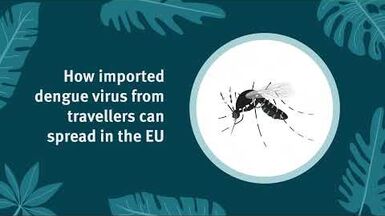Immunity to tetanus and diphtheria in the UK in 2009.Archived
These UK data indicate immunity gaps to tetanus and diphtheria in the very young, those aged 10-11 years and in the oldest. The observation of older adults remaining susceptible to tetanus and diphtheria points to the need of further vaccination in adulthood. These findings are of interest, given that the UK is one of the few European countries without a recommendation for routine adult booster doses and that surveillance data shows that even though the number of cases of tetanus and diphtheria reported in the UK remains very small, the severest infections are in the older group.
Immunity to tetanus and diphtheria in the UK in 2009.Wagner KS, White JM, Andrews NJ, Borrow R, Stanford E, Newton E, Pebody RG. Vaccine 2012 Nov 19;30(49):7111-7. doi: 10.1016/j.vaccine.2012.09.029.
Description
In this serosurvey, authors collected residual sera (n=2697), tested for tetanus and diphtheria antibodies, compared the results with findings published in 1996, and standardised data to the UK population. Protective antibody levels were defined >0.1 IU/mL for tetanus and >0.01 IU/mL for diphtheria. Protective levels were found in 83% and 76% for 2009 and 1996 respectively against tetanus (p = 0.079), and 75% versus 60% for 2009 versus 1996, respectively against diphtheria (p <0.001). In 2009, the largest proportion of individuals susceptible to both tetanus and diphtheria was observed for the age groups <1 year and 70+ years (>29% and >32% susceptible, respectively). Furthermore, in the group age 10-11 years, i.e., in individuals between the scheduled preschool and school leaver booster administration, low immunity was observed in >19%.
Disclosure statement
Three of the authors declared to have performed contract research on behalf of the Health Protection Agency for pharmaceutical companies.
ECDC Comment
These UK data indicate immunity gaps to tetanus and diphtheria in the very young, those aged 10-11 years and in the oldest. The observation of older adults remaining susceptible to tetanus and diphtheria points to the need of further vaccination in adulthood. These findings are of interest, given that the UK is one of the few European countries without a recommendation for routine adult booster doses and that surveillance data shows that even though the number of cases of tetanus and diphtheria reported in the UK remains very small, the severest infections are in the older group.
The addition of a school leaver diphtheria booster (Td/IPV vaccine, between 13 and 18 years of age) seems to have resulted in increased diphtheria immunity in adolescence and young adulthood. Limitations of the study include the use of residual, thus potentially not representative, serum samples, the somehow different assays used in 1996 and 2009 and the lack of established criteria for the interpretation of tetanus antitoxin levels.




